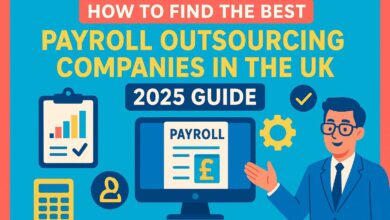How to Build a Long-Term Relationship with Your Tax Accountant in Canada

Building a lasting relationship with your tax accountant in Canada is essential for stress-free financial management. A trusted accountant does more than file your taxes—they guide you through complex tax rules, help you save money, and plan for the future. Whether you’re a small business owner, freelancer, or individual, a strong bond with your accountant can prevent costly mistakes and make tax season smoother. Websites like Webtaxonline provide valuable tax resources, but a personal connection with your accountant is key. Here’s how to create a strong, long-term relationship with your tax accountant using simple steps.
Choose the Right Accountant
Start by finding an accountant who fits your needs. Not every accountant specializes in the same areas, so pick one with experience relevant to your situation. For small business owners, look for someone knowledgeable about corporate taxes or self-employment income. For individuals, choose an accountant familiar with personal tax credits and deductions. Ask friends or colleagues for recommendations or search online for accountants with strong reviews. Verify their credentials, such as being a Certified Public Accountant (CPA) in Canada. A good match means they understand your financial goals and explain things in a way you can follow.
Communicate Openly and Honestly
Clear communication is the heart of a great relationship with your accountant. Share all the details about your income, expenses, and any changes in your financial life, like starting a new job or buying a property—even small details, like side income from freelancing, matter. Hiding information can lead to errors in your tax filings, which could cost you. For example, telling your accountant about all your income sources helps them find deductions, like home office costs or business travel expenses. Regular check-ins throughout the year, not just at tax time, keep them informed and build trust.
Stay Organized with Your Records
Keeping your financial records in order makes your accountant’s job easier and shows you value their time. Organize receipts, invoices, and other documents throughout the year. Use simple tools like spreadsheets or apps to track expenses, or ask your accountant for tips on record-keeping. For instance, if you’re claiming vehicle expenses, keep a log of mileage and trip purposes. Well-organized records let your accountant focus on finding tax-saving opportunities instead of sorting through piles of paperwork.
Respect Their Expertise
Trusting your accountant’s knowledge strengthens your partnership. They’re experts in Canadian tax laws, from GST/HST to capital gains and RRSP contributions. If you don’t understand their advice, ask for clarification politely instead of challenging their suggestions. For example, if they recommend a specific deduction, ask how it applies to you. This shows you value their input while helping you learn. Over time, they’ll understand your financial habits better and offer personalized advice, like ways to structure investments to reduce taxes.
Be Consistent Over Time
Sticking with the same accountant year after year builds a stronger relationship. Constantly switching accountants means explaining your financial history repeatedly, which wastes time. A long-term accountant gets to know your needs and spots trends in your finances and plans. For instance, they might notice you’re overpaying taxes and suggest increasing RRSP contributions. They can also keep you updated on tax law changes, like new credits for small businesses, ensuring you don’t miss out on savings.
Learn the Basics of Taxes
Take time to understand the basics of Canadian taxes to make your discussions with your accountant more productive. You don’t need to be an expert, but knowing things like income tax brackets or standard deductions helps you ask better questions. For example, understanding tax credits for families can make it easier to discuss childcare expenses. Your accountant will appreciate your effort to stay informed, and it creates a stronger teamwork dynamic.
Show Appreciation
A little gratitude goes a long way in building a lasting relationship. Thank your accountant for their hard work, whether it’s through a quick note or a call. If they’ve saved you money or caught a mistake, let them know you’re grateful. These small gestures create goodwill and make them more invested in your financial success. A relationship with your accountant is about more than numbers—it’s about trust and mutual respect.
Conclusion
A strong, long-term relationship with your tax accountant in Canada can make managing your finances easier and more effective. By choosing the right accountant, communicating openly, staying organized, respecting their expertise, being consistent, learning the basics, and showing appreciation, you create a partnership that benefits you for years. To learn more about taxes, check out this blog for more info: How Does Corporate Tax Work in Canada? With these steps, your tax accountant can become a trusted ally in your financial journey.



